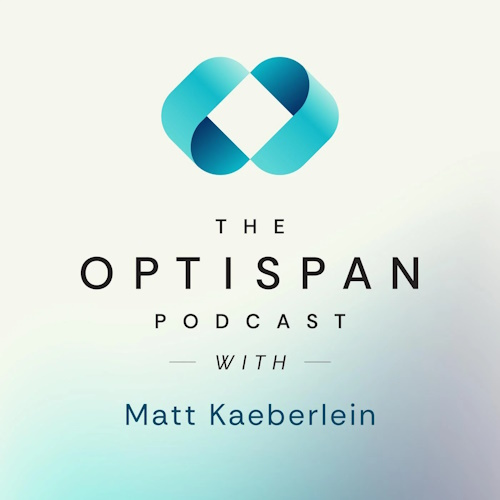The Hidden Health Toll Of Grief (and the 4 Tasks that Actually Work). | Emma Payne
Emma Payne examines the significant effects of grief on physical and mental health
In this episode of the Optispan podcast, Dr. Matt Kaeberlein speaks with Emma Payne, founder and CEO of Help Texts, a grief support service. Together, they explore the biological, emotional, and social dimensions of grief and how unacknowledged or unsupported grieving can impact long-term health.
Key Points:
Grief, often underestimated, triggers profound biological and psychological effects that can elevate health risks dramatically. Emma Payne outlines how understanding and supporting grief—through frameworks like Warden's Tasks and simple outreach—can transform it into a pathway for growth.
- Grief as Blunt Force Trauma-Biological Impacts: Grief acts like invisible trauma, heightening inflammation, disrupting sleep, and increasing risks for diseases like heart attacks, diabetes, and cancer—particularly acute in the first six months post-loss.
- Disruption of Health Pillars: Grief shatters basic wellness behaviors—eating, sleep, movement, and social connection. Men, in particular, face steeper health consequences due to often lacking adequate emotional outlets or community support.
- Instrumental vs. Intuitive Grievers: People grieve differently: “instrumental” grievers process through doing (e.g., exercise, action), while “intuitive” grievers need to feel and express. Most grief support targets the latter, neglecting the former—especially men.
- The Four Tasks of Mourning: Emma Payne explains Warden’s Four Tasks of Mourning: accepting the loss, processing the pain, adapting to life without the person, and maintaining an enduring connection. While each person's journey is unique, completing these tasks is vital for healthy grief recovery.
- Help Texts: Help Texts offers tailored, text-based grief support—not just to the bereaved but also to their friends and family—helping bridge awkward silences with empathetic, expert-informed messages. Men, surprisingly, show the highest retention.
- Post-Traumatic Growth & Brain Plasticity: Grief is also a catalyst for transformation—leading to deeper compassion, strengthened relationships, and even neurological rewiring. With the brain in a plastic, adaptive state, there’s a window of opportunity for personal growth.
Visit website: https://www.youtube.com/watch?v=XBmCZITFjH4
See alsoDetails last updated 01-May-2025




